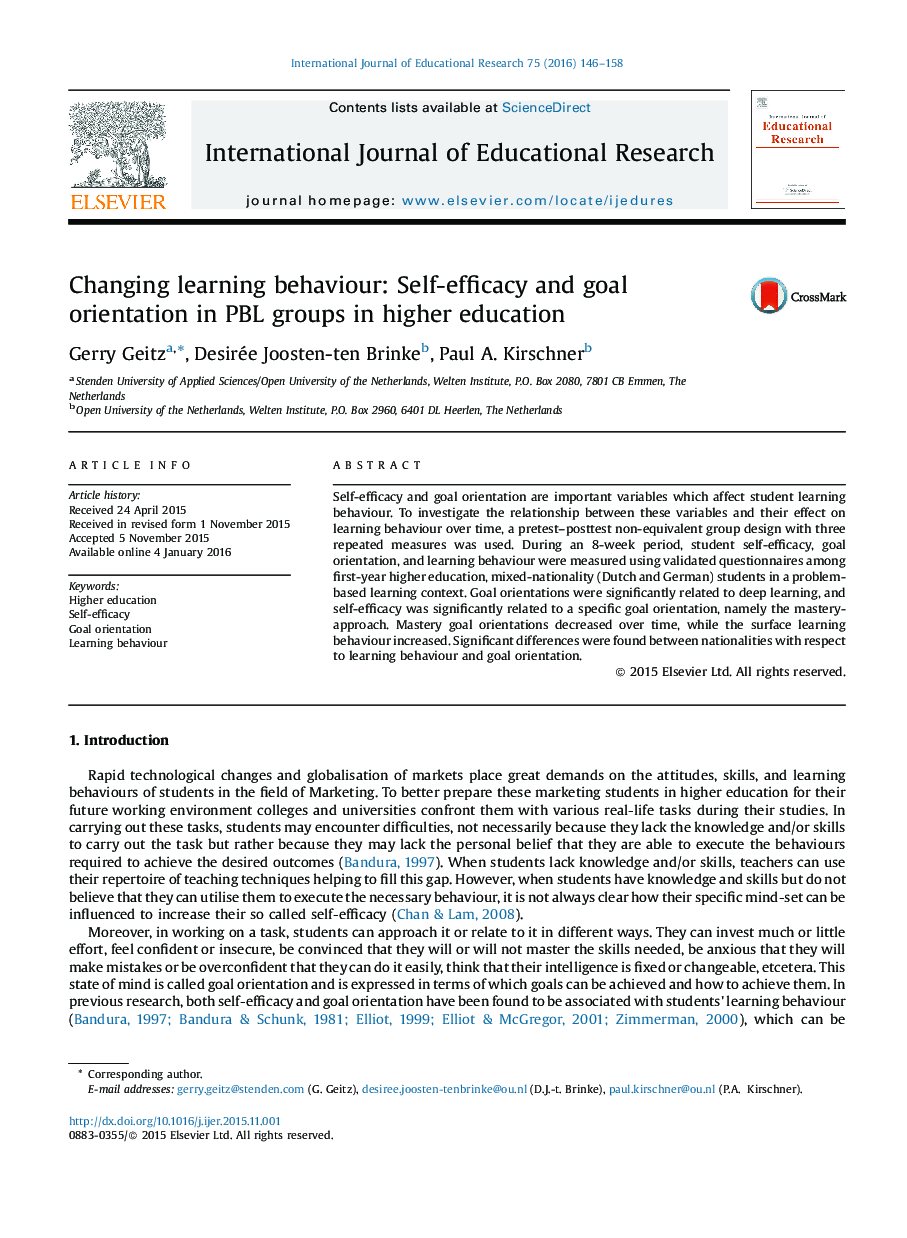| کد مقاله | کد نشریه | سال انتشار | مقاله انگلیسی | نسخه تمام متن |
|---|---|---|---|---|
| 356893 | 1435415 | 2016 | 13 صفحه PDF | دانلود رایگان |
• Goal orientations and learning behaviour change during instruction phase.
• The relation between goal orientations and learning behaviour change over time.
• National background leads to different orientations and learning behaviour.
• Goal orientations significantly relate to deep learning.
• Self-efficacy significantly relates to a mastery-approach.
Self-efficacy and goal orientation are important variables which affect student learning behaviour. To investigate the relationship between these variables and their effect on learning behaviour over time, a pretest–posttest non-equivalent group design with three repeated measures was used. During an 8-week period, student self-efficacy, goal orientation, and learning behaviour were measured using validated questionnaires among first-year higher education, mixed-nationality (Dutch and German) students in a problem-based learning context. Goal orientations were significantly related to deep learning, and self-efficacy was significantly related to a specific goal orientation, namely the mastery-approach. Mastery goal orientations decreased over time, while the surface learning behaviour increased. Significant differences were found between nationalities with respect to learning behaviour and goal orientation.
Journal: International Journal of Educational Research - Volume 75, 2016, Pages 146–158
